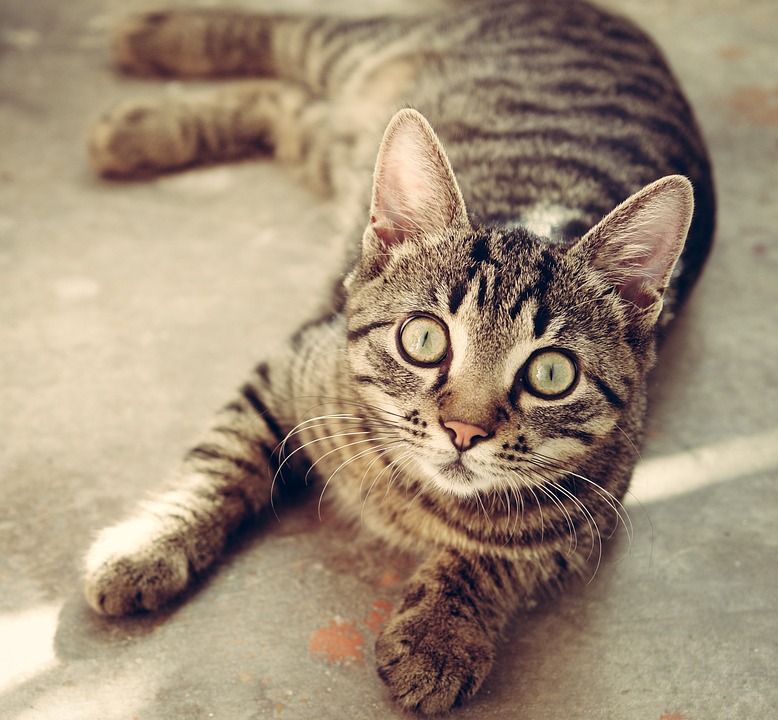Headbutting, also known as bunting, is a common behavior among cats that is usually seen as an affectionate gesture. However, excessive headbutting may indicate underlying issues that require attention. In this article, we will explore the causes and remedies for excessive headbutting in cats.
What is Headbutting and Why Do Cats Do It?
Headbutting, or bunting, is when a cat gently bumps their head against objects or people. Cats engage in this behavior for various reasons, including marking their territory, seeking attention, and bonding with their owners. It is their way of showing affection and familiarity.
Differentiating Normal Headbutting from Excessive Headbutting
While headbutting is a normal behavior, excessive headbutting may be a cause for concern. Normal headbutting occurs occasionally and is not persistent. Excessive headbutting, on the other hand, happens frequently and can be accompanied by other behavioral changes.
Causes of Excessive Headbutting in Cats
There are several reasons why a cat may engage in excessive headbutting:
1. Affection and Bonding: Cats use headbutting as a way to seek attention and affection from their owners. They may do it to initiate playtime or simply to show their love.
2. Marking Territory: Cats have scent glands on their heads, and headbutting allows them to leave their scent on objects or people. This behavior is a way for cats to mark their territory and establish familiarity.
3. Stress and Anxiety: Cats may engage in excessive headbutting as a response to stress or anxiety. Environmental changes, lack of stimulation, or separation anxiety can trigger this behavior.
4. Medical Reasons: In some cases, excessive headbutting may be a sign of an underlying medical issue. Cats in pain or discomfort may headbutt more frequently, as it provides them with a sense of comfort. Neurological disorders can also cause excessive headbutting.
Remedies for Excessive Headbutting
Addressing the root cause of excessive headbutting is essential. Here are some remedies to consider:
1. Rule Out Medical Issues: If you notice excessive headbutting, it is important to consult with a veterinarian to rule out any potential medical issues. Follow any treatment plans recommended by the veterinarian.
2. Provide Environmental Enrichment: Cats need mental and physical stimulation. Provide interactive toys and puzzles to keep them engaged. Vertical spaces and perches can also provide them with a sense of security and territory. Additionally, using scent enrichment, such as catnip or pheromone sprays, can help reduce anxiety.
3. Establish Consistent Routine and Attention: Cats thrive on routine. Establish regular playtime and interaction sessions with your cat. This will provide them with the attention and bonding they seek. It is also important to establish boundaries and discourage excessive headbutting when it becomes intrusive.
Frequently Asked Questions (FAQs)
Q1. Is excessive headbutting always a cause for concern?
Excessive headbutting may or may not be a cause for concern. It is best to observe any accompanying behavioral changes and consult with a veterinarian if you have any concerns.
Q2. How can I differentiate between headbutting and head pressing?
Headbutting is a gentle bumping of the head against objects or people, while head pressing is when a cat presses their head against a wall or other objects with force. Head pressing is usually a sign of a serious medical condition and requires immediate veterinary attention.
Q3. Can excessive headbutting be a sign of a serious medical condition?
While excessive headbutting can be a sign of a medical condition, it is not always the case. It is important to consider other accompanying symptoms and consult with a veterinarian for a proper diagnosis.
Q4. Will neutering or spaying my cat reduce excessive headbutting?
Neutering or spaying your cat can help reduce certain behaviors, such as spraying or aggressive behavior, but it may not directly reduce excessive headbutting. The underlying cause of the behavior should be addressed.
Q5. How long does it take for excessive headbutting to decrease after implementing remedies?
The time it takes for excessive headbutting to decrease depends on the underlying cause and the cat’s individual response to the remedies. It may take weeks or even months to see a significant improvement.
Q6. Should I punish my cat for excessive headbutting?
Punishing your cat for excessive headbutting is not recommended. Cats respond better to positive reinforcement and gentle redirection. Punishment can create fear and anxiety, worsening the behavior.
Conclusion
Understanding your cat’s behavior, including excessive headbutting, is crucial for their overall well-being. By addressing the underlying causes and implementing appropriate remedies, you can help your cat reduce excessive headbutting and ensure their happiness and comfort. Remember to consult with a veterinarian if you have any concerns about your cat’s behavior.








